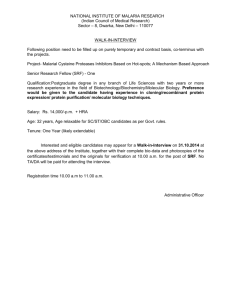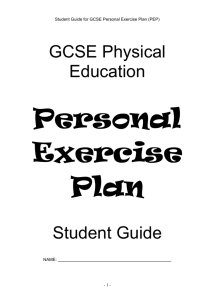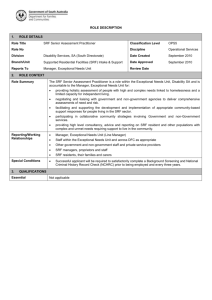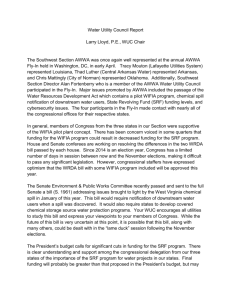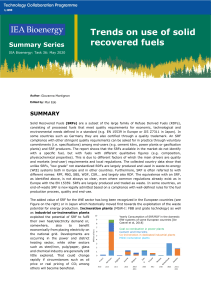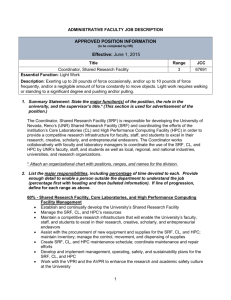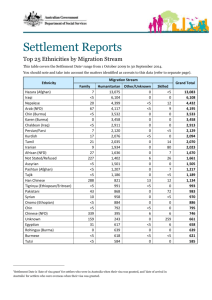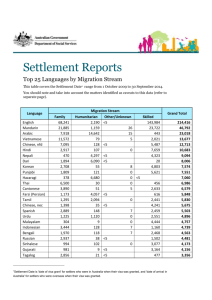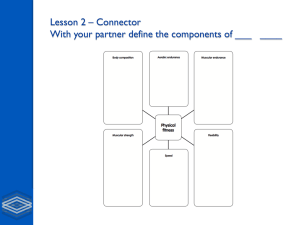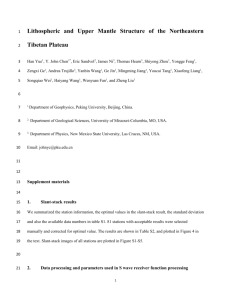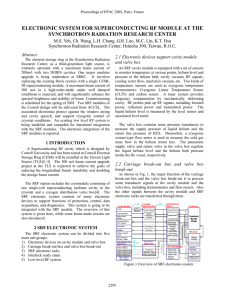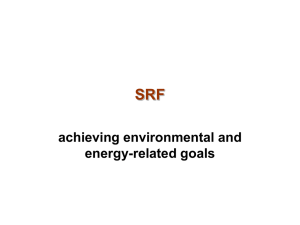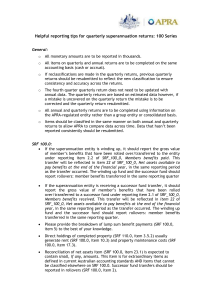Principles of Training - BSH-PE
advertisement
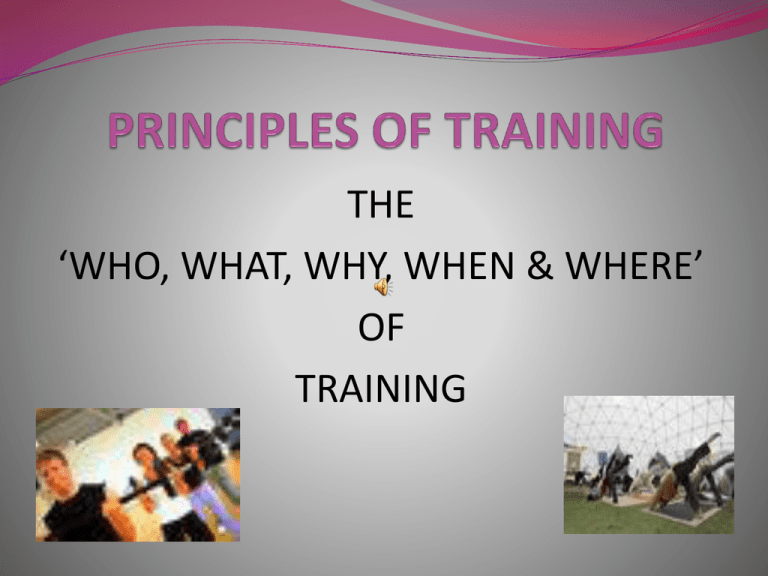
THE ‘WHO, WHAT, WHY, WHEN & WHERE’ OF TRAINING LEARNING OBJECTIVES Revisit exam board definitions Revise Principles of Training Relate POT to own PEP Reminder of PARQ SYSTEMATIC TRAINING FOR INDIVIDUAL NEEDS ? ? Why are no two plans the same ? ? WHO IS TRAINING? •Male, female, young, old, fat, thin, novice, elite. WHY ARE THEY TRAINING? •weight control, sport specific, health, rehabilitation WHAT IS THEIR AIM •HRF/SRF WHEN WILL THEY TRAIN? •How often & for how long HOW WILL THEY BE TRAINING? •MOT WHERE CAN THEY TRAIN? •Facilities available? Finance? NEEDS OF THE SPORT? SAME SPORT – SAME TRAINING? - discuss ? ALL ATHLETES, BUT HOW WOULD THEIR TRAINING DIFFER? HRF-Flexibility& muscular strength SRF Agility Balance Coordinatio Power, Reaction time & Speed HRF-muscular strength & flexibility SRF Agility Coordination Power HRF CVE & ME SRF Agility+ discuss! MOVE PICTURES TO FIND ANSWERS DIFFERENT DEMANDS? TRAINING NEEDS TO BE SPECIFIC TO YOUR SPORT OR ACTIVITY NEEDS? …? NEEDS …?? SPECIFICITY YOU MUST DO SPECIFIC KINDS OF ACTIVITY TO BUILD UP SPECIFIC BODY PARTS For example, a biceps curl will develop strength in the arms. It will not affect any other part of the body or component of fitness. CAN YOU SUGGEST OTHER EXAMPLES?LOOK UNDER THE RECTANGLE Cyclists train on a bike, Swimmers in the pool etc Games players use skill practices or small sided games Dancers and gymnasts practice individual skills HRF & SRF training can all be tailored to an activity etc A BICEP CURL SET MAY NOT BENEFIT A DISTANCE RUNNER? DISCUSS THRESHOLDS OF TRAINING training threshold is: how high your heart rate needs to be in order for the body to train effectively and show an improvement How to work it out…. For cardiovascular (aerobic) exercise it should be at least 60% of your maximum heart rate. Normally need to use 60-80% of max as your training zone. Max Heart Rate = 220 – age therefore; Training Zone for 15 year old = 123 to 164 beats per minute Training threshold= 123 You should exercise at this rate for at least 20 to 30 minutes 2/3 times a week PROGRESSION –key word is GRADUAL GRADUALLY INCREASE PACE GRADUALLY INCREASE LENGTH OF SESSION GRADUALLY INCREASE INCLINE GRADUALLY INCREASE TIMES PER WEEK working harder than usual, in the target zone! Its obvious how this works, but how can we overload the following exercises? Do you know any other specialised equipment which can create overload? REMEMBER THE 60%-80%RULE F.I.T.T. Frequency - how often? You tell me? Intensity - how hard? How do you know what is hard enough?? OUT OF BREATH? Time - how long. How long do you need?? Type - just how, list the methods you should know DID YOU NAME THESE METHODS REGULARITY & MODERATION IT IS IMPORTANT TO TRAIN REGULARLY,TO MAINTAIN FITNESS BUT REST & RECOVERY ARE ALSO IMPORTANT GET THE BALANCE RIGHT NOT ENOUGH EXERCISE CAN EQUAL; •AT BEST NO IMPROVEMENT •AT WORST OBESITY TOO MUCH EXERCISE CAN CAUSE; • CHRONIC FATIGUE • OVER USE INJURIES • ANOREXIA REVERSIBILITY -advantages gained through training will be lost if training is discontinued . You cannot train if; you are ill You have been injured You are overtired you need to allow recovery time USE IT OR LOSE IT! PEP-your personal exercise plan Which principles did you use? Which did you leave out (if any) and why? How do you calculate Training Threshold & Training Zone Which tests did you use? give your reasons. Why does a training plan need evaluating? PARQ-physical activity readiness questionnaires Why is a PARQ important? What questions go into a PARQ? What should be part of every training session? What rules apply in a weight training room? SAFETY What safety rules apply to these activities? RECAP; DEFINITIONS Can you remember these? SYSTEMATIC TRAINING FOR INDIVIDUAL NEEDS SPECIFICITY TRAINING THRESHOLD OVERLOAD PROGRESSION FITT PRINCIPLES REGULARITY MODERATION REVERSIBILITY Complete definitions sheet for homework Try to make a good mnemonic to remember all of these
